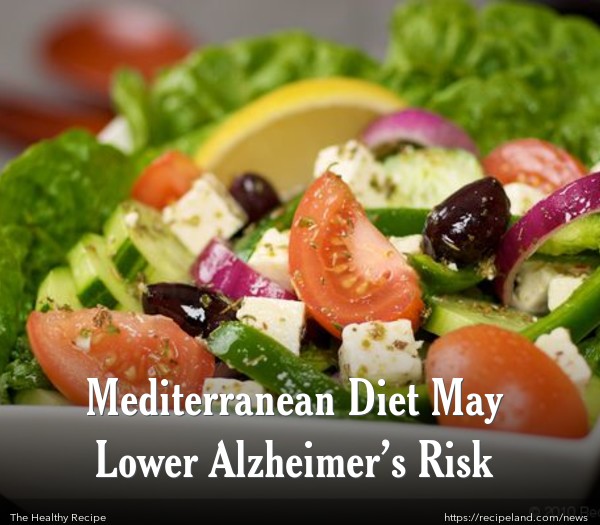Researchers in the U.S. took a close look at the data of over 17,000 men and women who were participating in a separate study about stroke. Their memory and cognition (thinking) skills were measured over the course of the four year study, during which time about 7% of the participants developed some form of memory loss or impaired cognition.
Those who were on the Mediterranean Diet were found to be nearly 20% less likely to suffer from memory problems. Individual’s race did not affect findings, but patients who were already diabetic did not appear to have a reduced risk of dementia when following the Mediterranean Diet.
“Greater adherence to Mediterranean diet was associated with lower risk of incident cognitive impairment in this large population-based study," noted Dr. Tsivgoulis, the lead researcher of the study.(1)
The Mediterranean Diet has become more popular in recent years for both weight loss and heart health. Lean proteins such as chicken and fish, vegetables, and large amounts of olive oil, nuts, and other omega-3 rich foods are the mainstays of this diet- with limited amounts of red meat and dairy products.
Dr. Tvisgoulis also pointed out that there are no guaranteed treatments available for Alzheimer's disease, so changing your diet by increasing the amount of omega-3 fatty acids and avoiding dairy and meats is a simple way to lower your risk – or delay the onset of dementia.
“Recent prospective studies provided evidence that higher adherence to a Mediterranean-type diet could be associated with slower cognitive decline, reduced risk of progression from mild cognitive impairment to Alzheimer's disease (AD), reduced risk of AD, and decreased mortality in AD patients. Furthermore, the Mediterranean diet (MeDi) combines several foods, micro- and macronutrients already separately proposed as potential protective factors against dementia and pre-dementia syndromes.”(2)
Not only can a Mediterranean diet reduce the risk of developing Alzheimer’s, it can also slow down the onset of dementia symptoms.
The high amounts of mono- and polyunsaturated fatty acids and fish consumption in this diet may play the most important role in protecting the brain from memory loss and thinking problems as we age.
In addition to eating lots of unsaturated fats and omega-3 rich foods, exercise may also be a critical way to keep both the body and brain in shape into old age.
Dr. Gandy of Mount Sinai Alzheimer’s Disease Research Center suggests that “the best way to minimize Alzheimer's disease is with 30-minute sessions three times a week of brisk walking or weight lifting, maximizing mental activity and a Mediterranean diet. This is the best prescription for maintaining of mental function that we have in hand right now.”(1)
SOURCES: (1)Georgios Tsivgoulis, M.D., University of Alabama at Birmingham, and University of Athens, Greece; Sam Gandy, M.D., associate director, Mount Sinai Alzheimer's Disease Research Center, New York City; April 30, 2013, Neurology
(2)Frisardi, V., Panza, F., Seripa, D., Imbimbo, B., Vendemiale, G., Pilotto, A., & Solfrizzi, V. (2010). Nutraceutical properties of Mediterranean diet and cognitive decline: possible underlying mechanisms. Journal Of Alzheimer's Disease: JAD, 22(3), 715-740. doi:10.3233/JAD-2010-100942;










Comments